Your ideal weight for cycling might not necessarily be as light as possible.
It can be risky to lose weight through cycling and can be counterproductive in certain conditions and terrain.
Besides weight, a host of factors, such as fueling and fitness, influence cycling performance.
We asked four cycling nutritionists how to find your optimal weight for cycling and how to reach it, but also why you should be cautious about weight-loss targets.
Why is weight important for cyclists?
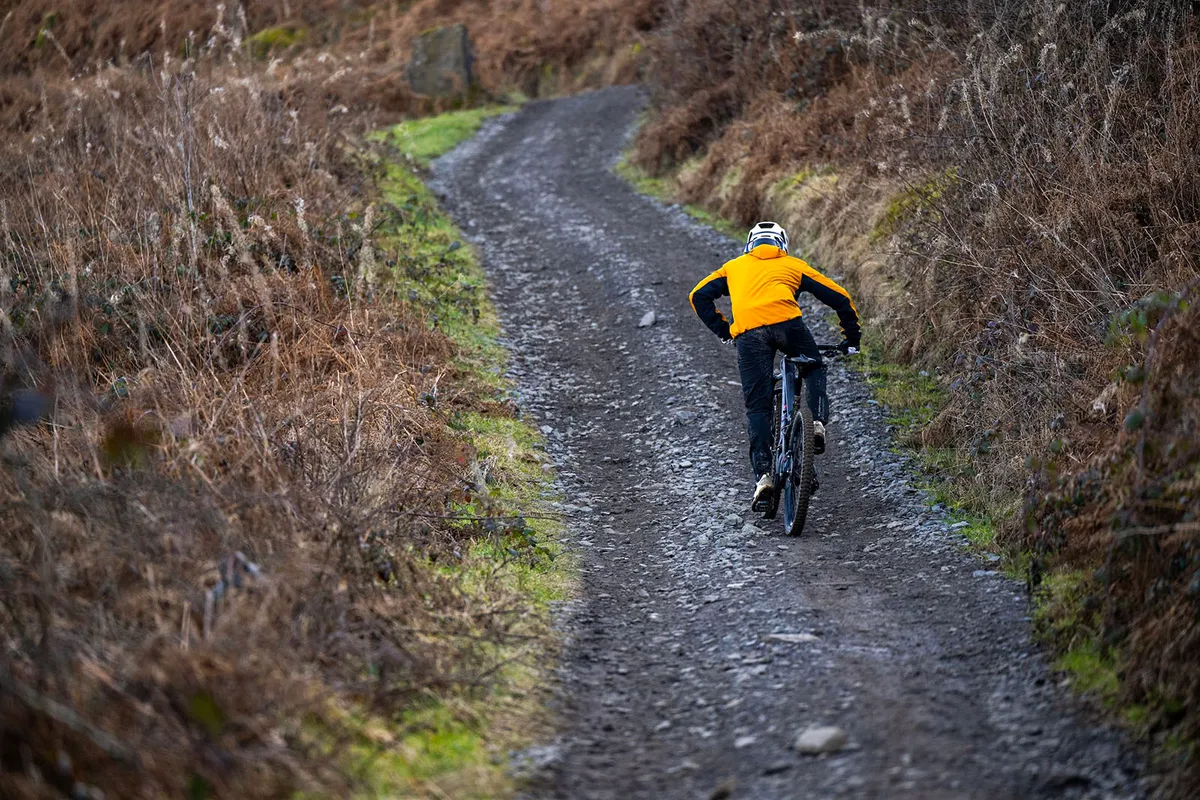
Cyclists obsess over their weight, but power-to-weight ratio (W/kg) can have more influence on performance.
The number of watts you can produce relative to your bodyweight determines how fast you can ride uphill. At the same power output, a lighter rider will ascend faster than a heavier rider.
Therefore, raising your W/kg is the best way to improve your climbing. This will benefit you in hill climbs and mountainous sportives.
You can boost your W/kg without losing weight or even gaining some by increasing your power output.
This is why sport nutritionist Ellen McDermott, of McD Nutrition, puts less emphasis on the crude metric of weight.
“I'm actually looking more at the watts per kilo equation and how do you fuel correctly so that you can smash out your five by five [minute intervals],” she says.
How to find your optimal cycling weight
McDermott says you’ll struggle to find your best cycling weight yourself.
She says working with a coach and / or nutritionist one-to-one will help you look more objectively at your weight. They’ll take into account its impact on your cycling performance, and physical and mental health.
A lot of people don’t have the budget or inclination for this though. So whether you’re working with professionals or on your own, here are some factors to consider about your cycling weight.
BMI
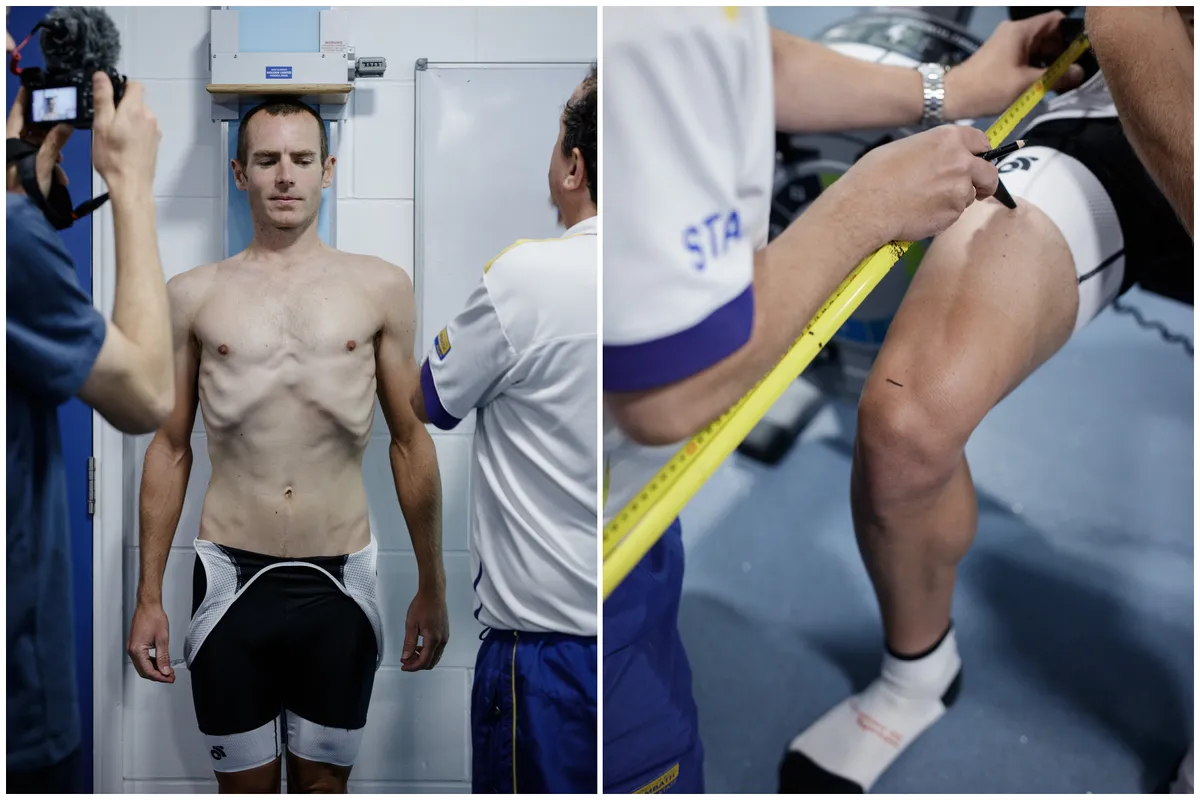
The limitations of Body Mass Index (BMI) for the general population and cyclists alike are well known.
The index suggests a healthy weight range based solely on your height and weight. So it may class a short, muscular person as obese.
Despite these flaws, McDermott says BMI can be useful to identify people at extreme ends of the spectrum.
She would advise a rider with a BMI lower than 18.5 to gain weight.
Nonetheless, BMI only informs a fraction of the conversation about weight in cycling.
Body composition
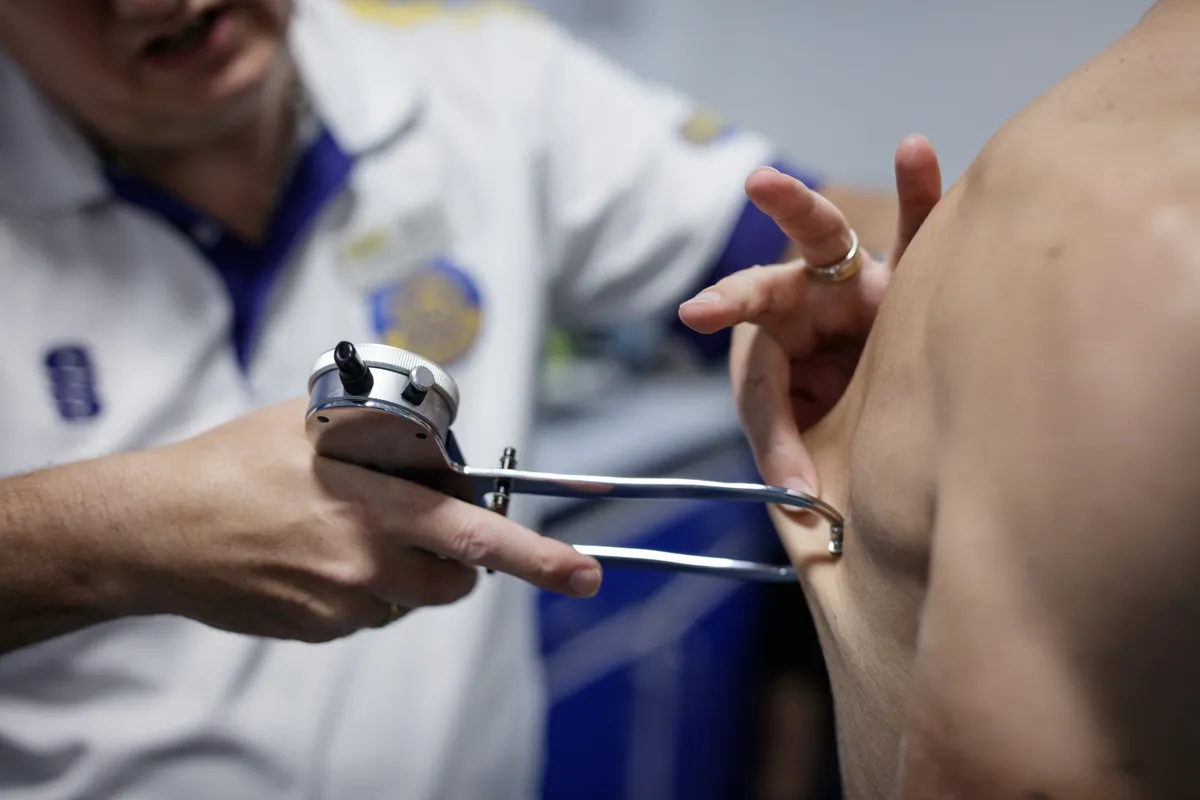
Body composition expressed as a person’s body fat percentage is another way of looking at weight.
Will Girling, a nutritionist at EF-Education Cannondale WorldTour, says: “The most optimal, healthy body fat percentage [for men] is around 10 per cent.”
He says such a percentage is obtainable and sustainable all year round for people with typical jobs.
Your general health, such as hormone levels, shouldn’t decline by being leaner though. And 13-15 per cent remains a healthy range for men, according to Girling.
Girling says: “Women hold more fat than men, so a woman with 10 per cent body fat would be crazy lean. That would be an Olympic athlete.”
A more typical body fat percentage range for female cyclists is 15-24 per cent.
How to measure body fat percentage
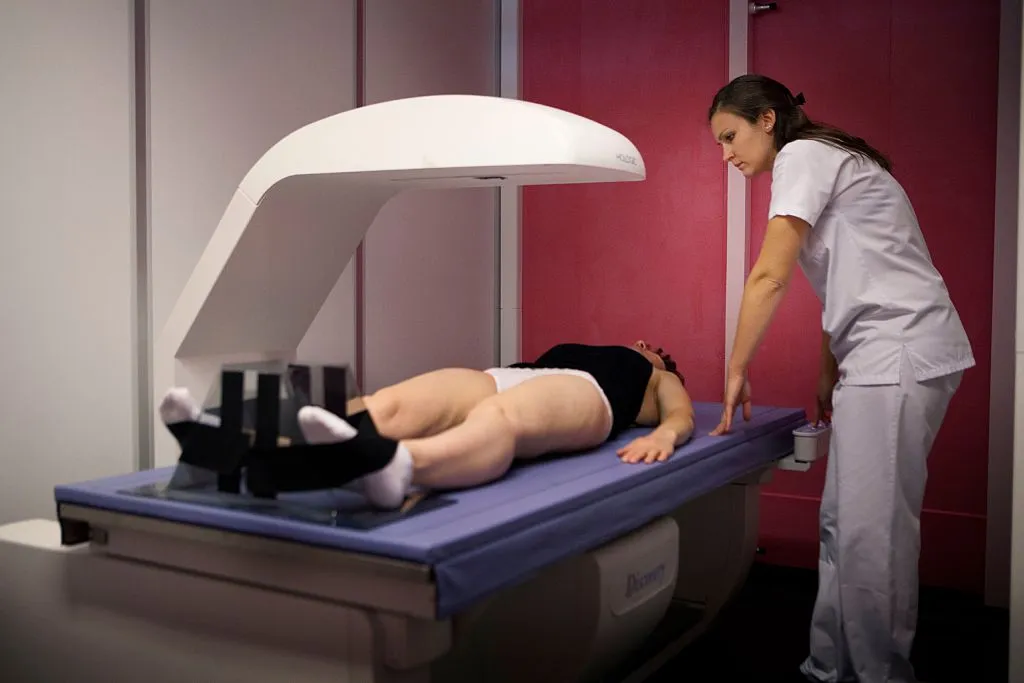
The gold-standard way to measure body composition is a DEXA (dual-energy X-ray absorptiometry) scan. In addition to your bone density, this calculates your body fat percentage.
Girling says: “This data definitively tells you what your weight is and where it should be to be optimal.”
Costing in the region of £125 / $125, a DEXA scan isn’t cheap. But for amateurs who are serious about optimising their body shape for performance, Girling says a DEXA scan could be worthwhile, especially if they’re not working with a nutritionist.
Girling says: “Without one you are licking your finger, holding it in the wind and guessing [about your body composition].
“It takes any bias you might have out of the window by being more objective.”
McDermott says a skinfold analysis is a cheaper, but less accurate test. Some universities in the UK offer a skinfold analysis from £50.
Smart scales are not thought to be as accurate as either laboratory method. But prices range from £35 to £250 and you can use them when you want at home.
Nonetheless, neither McDermott or Girling target a precise body fat percentage in their athletes. Performance on the bike comes first.
Subjective indicators
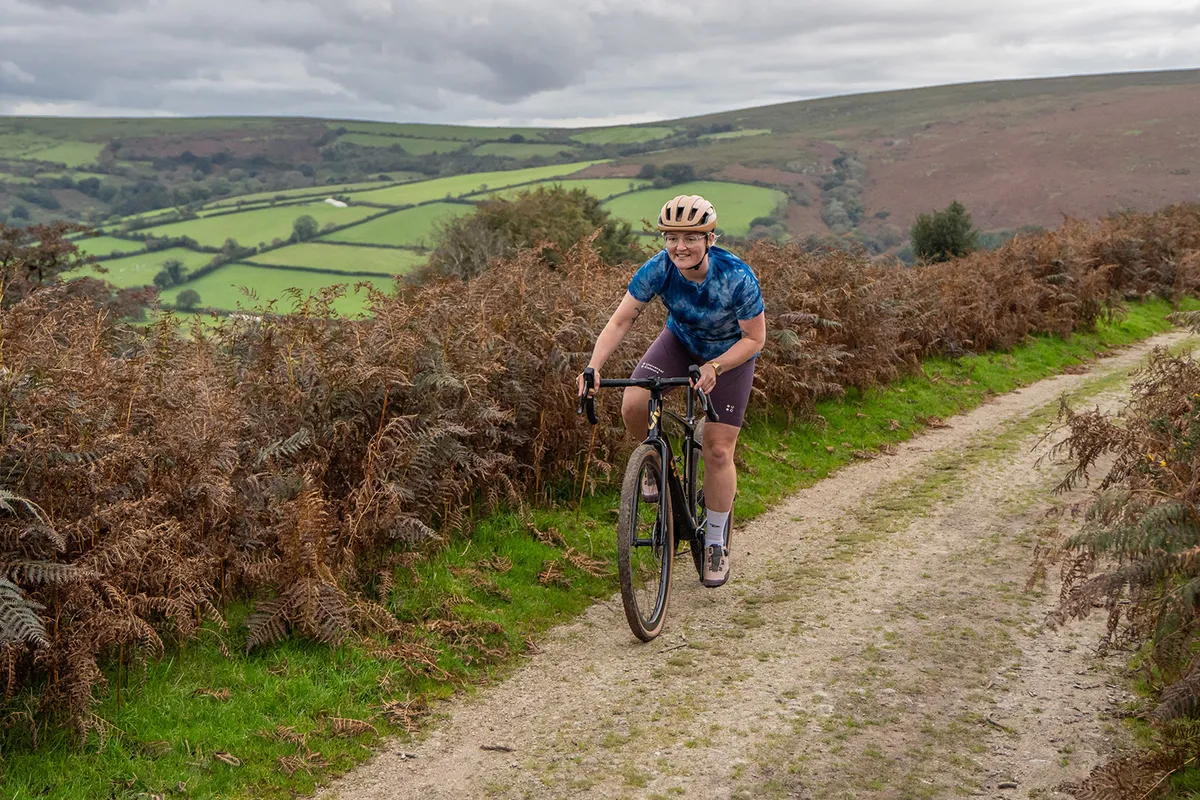
To help them find their optimal cycling weight, McDermott asks her clients to reflect on what they’ve weighed in the past.
They might want to try to replicate a weight at which they felt good on and off the bike.
On the other hand, she says: “If they got to a weight and were getting sick all the time, not recovering well and feeling a shadow of their former selves, that’s something we’d want to avoid.”
Horses for courses
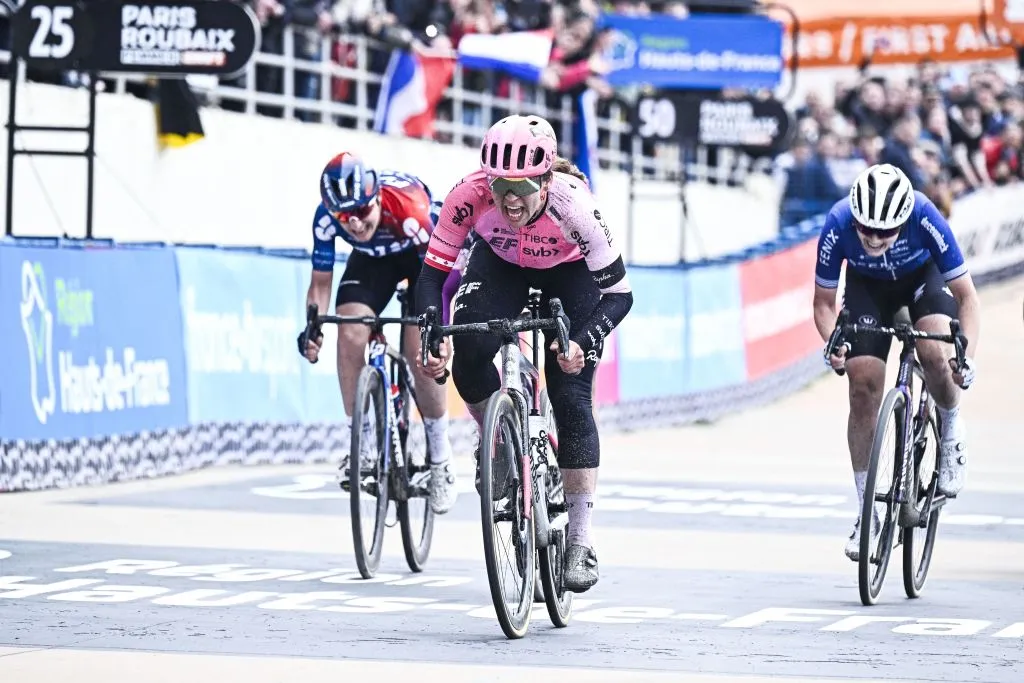
Different cycling events favour different body shapes, so your optimal cycling weight will depend on the type of riding you do in which conditions.
Girling says: “Losing weight is beneficial to a point, depending on what your overall goals are.
“If you’re doing an event that involves a lot of climbing, it is something worth considering and doing.
“But there is an overall focus on losing weight and more people sacrifice potential watts that could be gained.”
For example, a rider could lose weight and increase their W/kg but see their Functional Threshold Power drop.
Time trialists and criterium racers, or non-racers who enjoy fast group rides, probably don’t want this.
In conversation with a good nutritionist or coach, Girling says they might decide “there is more scope to increase power. If you gain weight, both your watts per kilo and total power could increase.”
This way they’d avoid the potential pitfalls of losing weight.
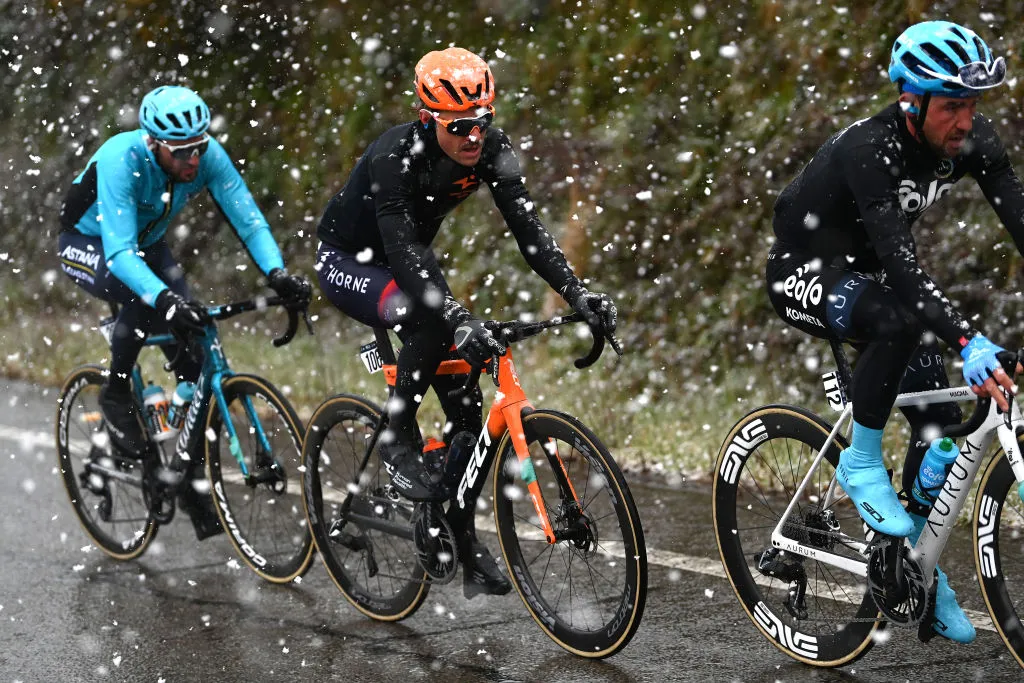
In bad weather, a high power-to-weight ratio and low body fat percentage could be detrimental.
“Say, for example, you go over to Belgium and it's snowing,” says McDermott.
“Then you're at risk of being too cold in a race that's going to last three to four hours.
“And if you can't feel your fingers and your toes, then you're not really at an advantage there.
“So that's one of the places I would 100 per cent say that's [low body fat] not really a target for you.”
Cycling’s weight problem
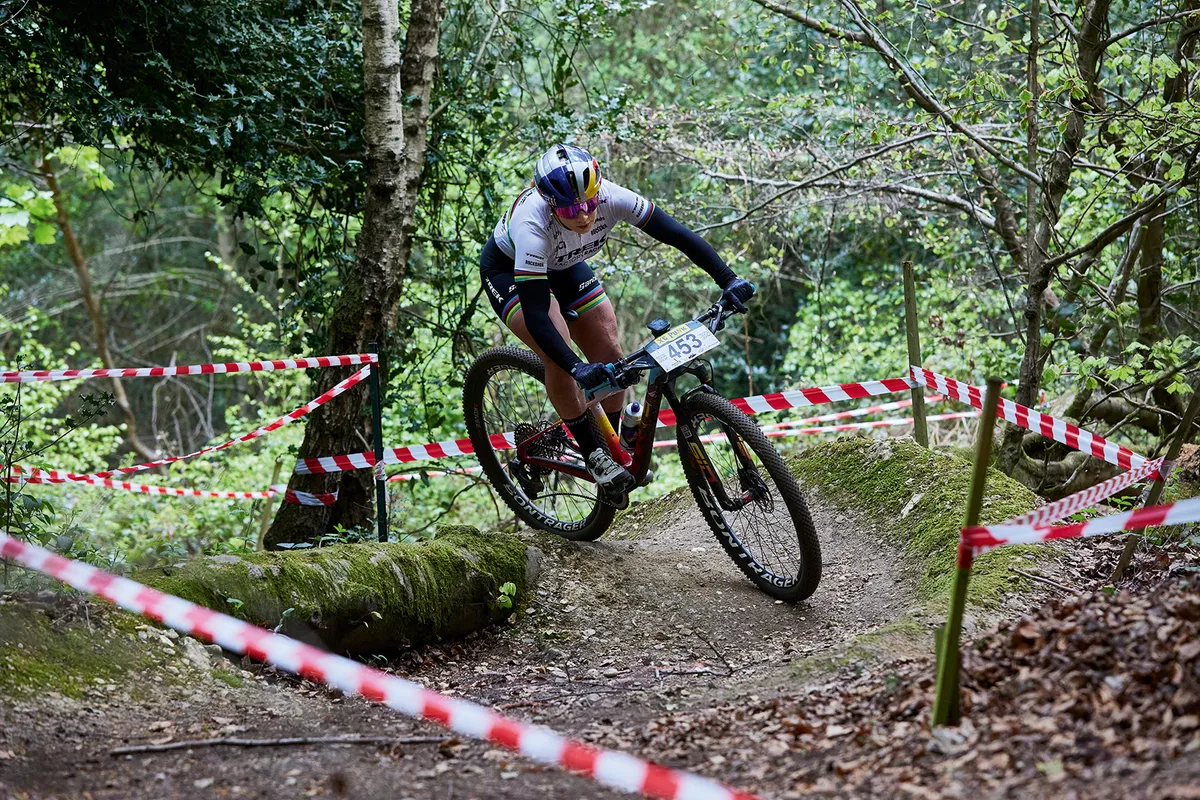
Due to the sensitivity of surrounding weight in society and cycling, McDermott says: “You have to be really careful when talking about body weight.
“Because of people’s perception of it, they get stressed about it and that stress can lead to a reduction in body fat loss or retention of body fat.”
Instead, McDermott will rarely set a specific weight-loss target with an athlete.
If the rider is preparing for a hilly event five weeks away, where weight loss could be beneficial, she says they’ll establish a feasible calorie daily deficit for that time period. Then they’ll see where that deficit leads in terms of weight loss.
How to eat to reach your ideal cycling weight
The advice below is general, so consult a qualified medical professional before attempting to dramatically gain or lose weight.
Prioritise protein

Protein becomes even more important for cyclists with a caloric deficit. You risk losing muscle, and with it power, if you don’t consume 2g/kg body weight a day, says Girling.
With ample protein intake, Girling says you can increase lean muscle mass in a moderate energy deficit of about 500 calories – especially while strength training.
A 500-calorie deficit will result in weight loss of about 300-400g a week. Don’t be frustrated by the gradual speed of this decline and cut calories further.
“You have a high risk of not recovering, becoming overtrained and having all sorts of negative effects,” says Dr Asker Jeukendrup, head of nutrition at Visma – Lease a Bike.
McDermott says only people who have a lot of weight to lose might be able to shed closer to a kilo a week, at least initially.
Maintain carbs around training sessions
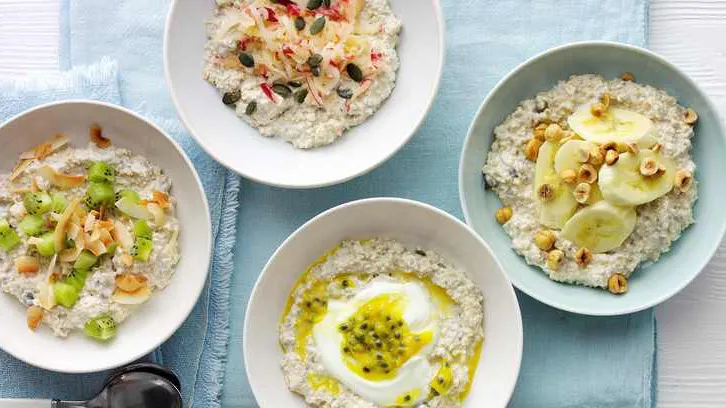
Carbohydrates are the body’s preferred energy source during high-intensity interval training. You’ll also oxidise a lot of them during endurance training.
Fortunately, you don’t have to be in a carb shortfall while losing weight.
Jeukendrup says: “You can still have very high carbohydrate stores even though you're in a negative energy balance.”
To do this, your carbohydrate needs to be adequately high in and around demanding training sessions.
At other times, it can be lower. Dr Podlogar, a nutritionist at Bora-Hansgrohe, says you can get away with consuming 2g of carbohydrates per kilo of body weight on easier days.
Cut fat to a minimum
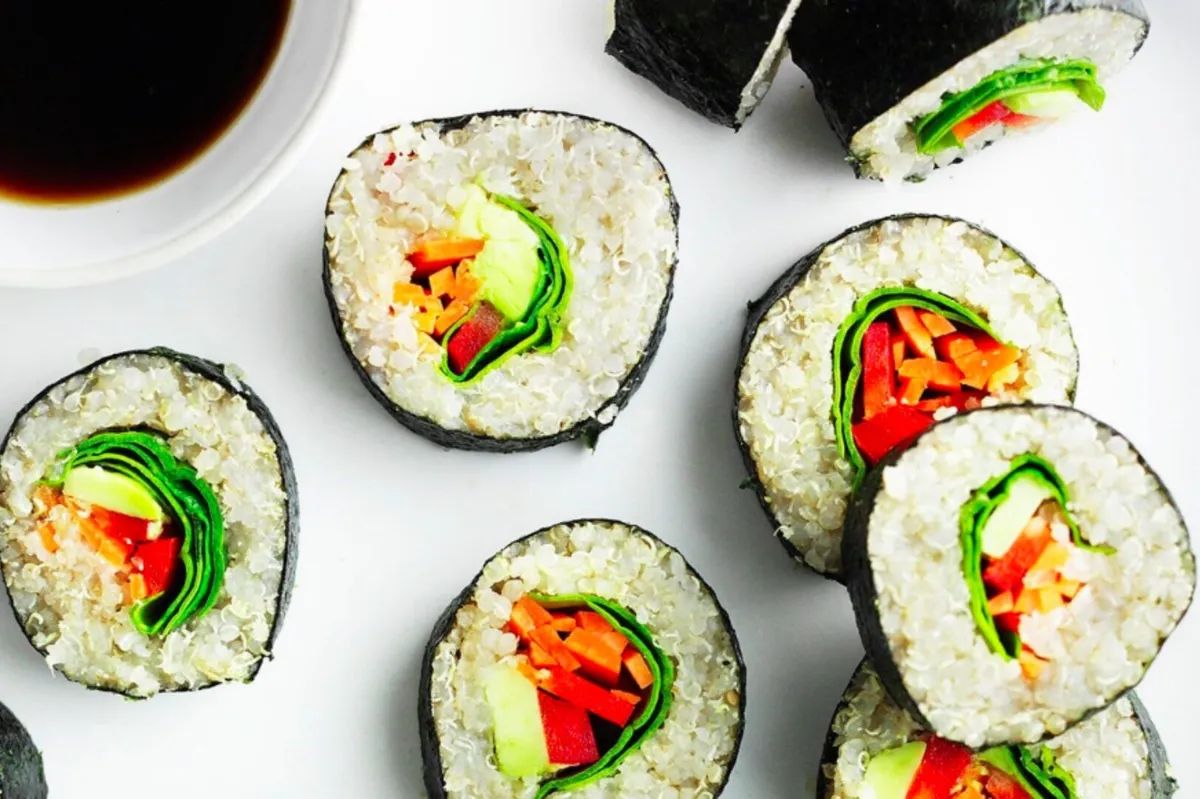
The number of calories cycling burns mean carbohydrate and protein requirements of cycling training are high. Therefore, to create a negative energy balance, you have to reduce calorie intake elsewhere.
Dr Podlogar says: “Going relatively low in fat for amateurs can be more important than for professionals.”
While a professional might require 5,000 calories a day and an amateur 3,000, he explains that “carbohydrate demands can be pretty similar”.
This leaves an amateur less room in their calorie budget to fill with fat.
To achieve this, McDermott advises consuming quality sources of protein that contain less than five per cent fat.
Which cyclists might need to gain weight?
McDermott often advises lighter cyclists, especially young men, to gain weight so they can produce more power to keep up on the flat.
“They often struggle to eat enough because their metabolic rate is so high.
“As an example, a BMI below 18.5 is a red zone for me. I’ll look to increase their body mass from there,” she adds.
Such a low BMI may inhibit recovery and a rider’s ability to push enough power on the flat and downhill, according to McDermott.
Is it worth losing weight?
While losing weight, the quality of your important workouts could decline.
As a result of low energy, you may also feel sluggish after training. In a worse-case scenario, this could escalate into a health issue, such as RED-S.
Impacted training

Being in a calorie deficit may adversely impact your interval training.
Jeukendrup says: “One of the things that weight loss does is it makes it harder to exercise there [at high intensity].
“There's no question about it. It makes it harder to recover.”
Jeukendrup’s message is not to lose sight of why you’re trying to lose weight.
“I think the training almost has to come first, right?” he says.
“Some people have to lose weight for other reasons. But most of the athletes that I work with want to lose weight to be competitive.”
With this in mind, Dr Podlogar never recommends that riders lose weight during races or hard blocks of training.
The same applies to an amateur cyclist training for a sportive. If desired, weight loss should come earlier in the training plan.
Loss of progress

You have to lose weight carefully so it comes from body fat, according to McDermott.
“If that weight loss comes from muscle mass, then I haven’t done my job.”
Loss of muscle will decrease power. And as Jeukendrup says: “If you lose a lot of weight, but your power drops, you haven't gained anything.
“If anything you've done damage.”
There is also a link between under-fueling and under-recovery, which can lead to regular illness and overtraining, according to Girling.
Disordered eating
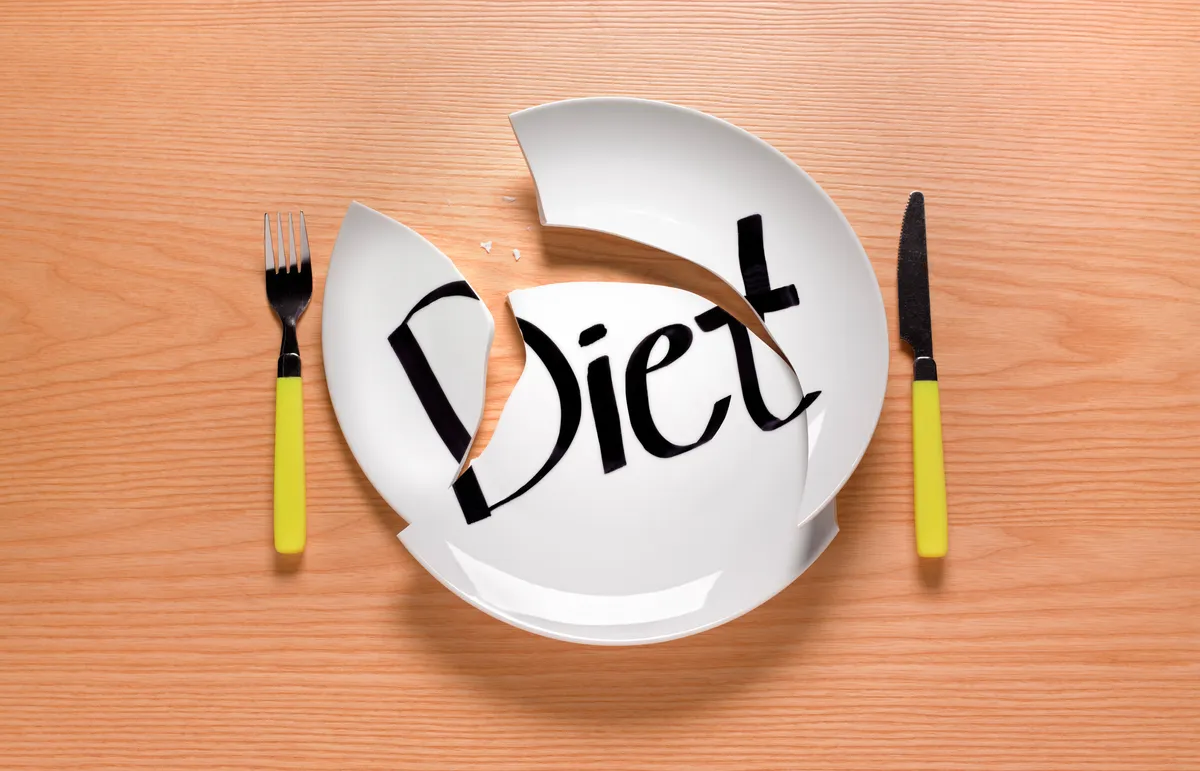
McDermott has seen cyclists develop an unhealthy relationship with food while losing weight.
She says: “They start losing weight and they can’t stop.
“There are so many negative effects of being in a calorie deficit for too long or too high a deficit for too long.
“It starts to have a psychological impact on their eating behaviours and I have seen people develop an eating disorder, literally because they don’t understand enough beyond what the numbers on the screen are saying.”
As outlined above, numbers such as total weight and W/kg don’t necessarily translate into better cycling performance. Side effects of weight loss, including illness and low energy, could outweigh the potential benefits.
RED-S
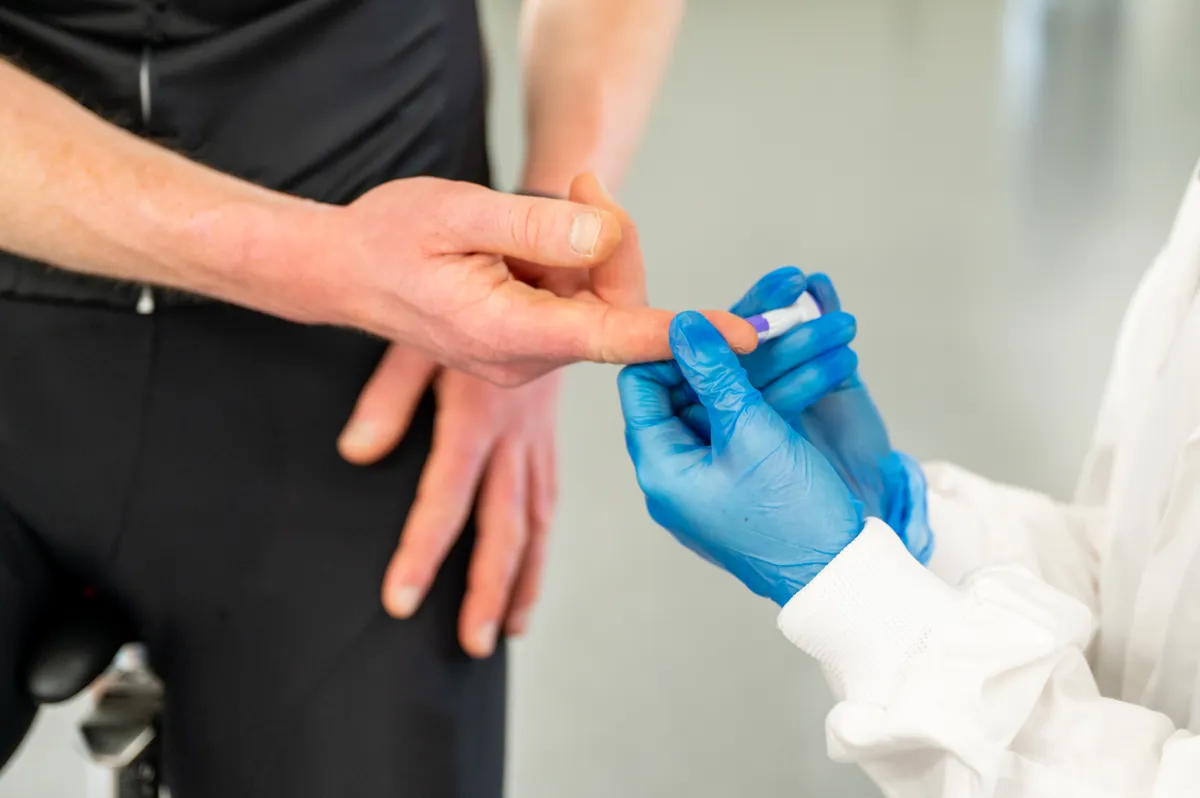
Another risk associated with low body weight and under-fuelling is Relative Energy Deficiency in Sport (RED-S).
Caused by long-term, inadequate energy intake, this condition can affect endurance athletes. It can interrupt periods in women and lead to low body density in both sexes.
McDermott says: “Low or elevated levels of thyroid and cortisol hormones combined with other indicators like low bone density, low BMI and low resting metabolic rate compared to their predicted rate are red flags of chronic under-fueling.”
If your under-fueling is less serious or prolonged, you may struggle to sleep after a hard session or feel drowsy in the afternoon following a morning ride, according to McDermott.
Do you need to be at your ideal weight?
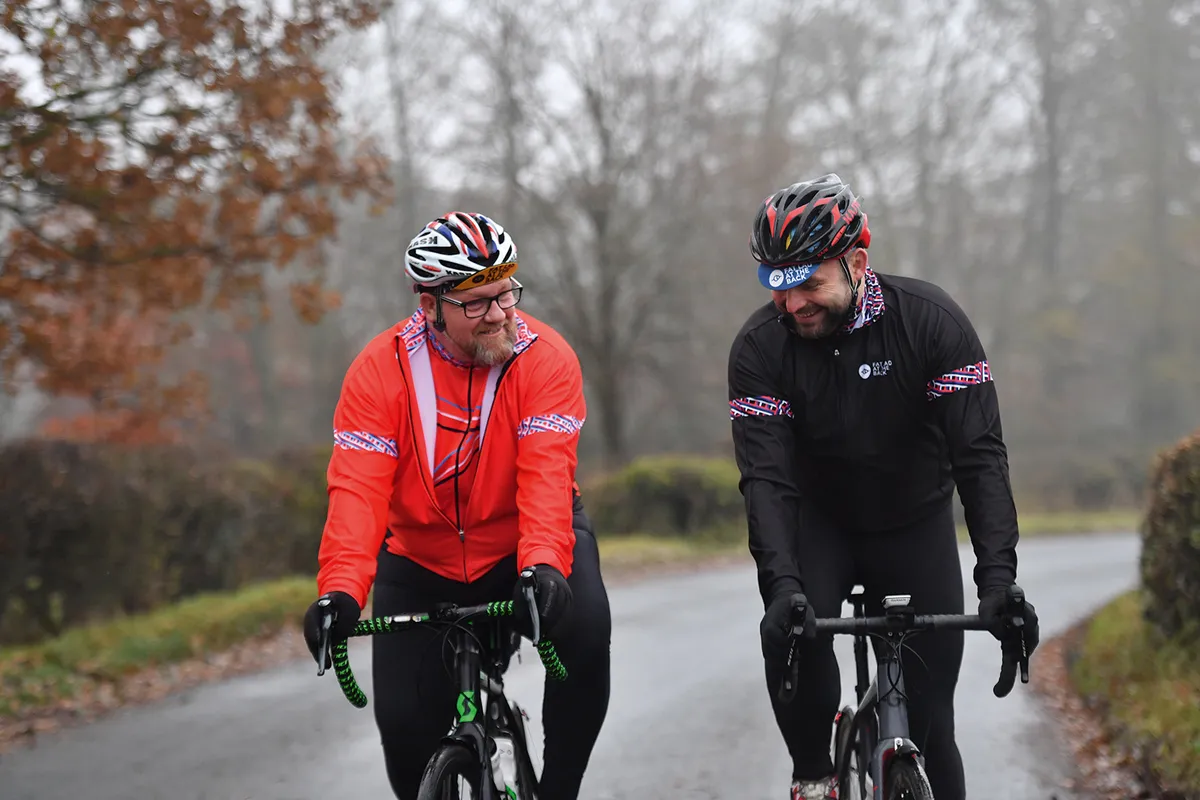
Unless you are what Girling calls a professional or “ambitious amateur”, your weight might not matter, especially if it isn’t detrimental to your enjoyment of cycling.
After all, there are many benefits to cycling besides being lean.
